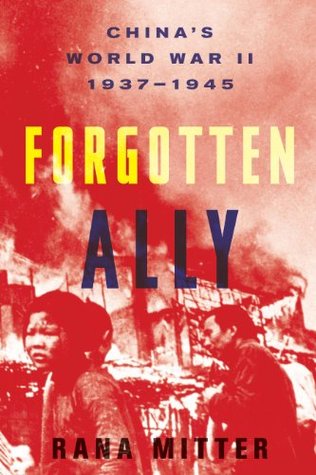More on this book
Community
Kindle Notes & Highlights
Yet the Civil War, once started, went badly for the Nationalists, in large part because of Chiang Kai-shek’s judgments. During the war against Japan, Chiang had played an appallingly bad hand much better than might have been expected. During the Civil War, his judgment appears to have deserted him. In particular, his decision to extend his lines to try and recapture the northeast—the region which was the Communist heartland where Mao was underpinned by strong support from the neighboring USSR—was spectacularly ill-judged. In 1945–1946 George Marshall had encouraged Chiang to try and recapture
...more
Shenyang (Mukden) had been lost, and the northeast with it. Lin’s troops of the People’s Liberation Army (PLA) drove on further, taking north China, and were poised for the conquest of central China too. During the first half of 1949 Chiang transferred his naval and air force headquarters to the island of Taiwan; many civilians followed suit. In May Chiang set sail for Taiwan. He would never return to the mainland. The war continued through the summer, but Chiang knew that the game was up and all sides expected a Communist victory, as cities fell one by one—Nanjing, Shanghai, and Chongqing. On
...more
those who saw Vietnam as an unjust war, Mao’s social experiment during the war against Japan helped to burnish the idea that indigenous social revolution should be understood rather than opposed. However, with this “Yan’an-centered” history of the wartime period, the record of the Nationalists was mostly dismissed.
There was nothing inevitable about the Chinese Communist Party’s coming to power in 1949. Without the war with Japan, there would have been a greater possibility of an anti-imperialist, anti-Communist Nationalist government consolidating power. It would have still been an immensely hard task, not least because of the Nationalists’ own huge flaws, but the war made it nearly impossible. Of course, in an Asia ruled by Japan, China would have remained colonized for decades or more. The political conditions of China today are not the only possible ones that history could have produced. One of the
...more
China remains the forgotten ally, its contribution only slowly being remembered as its experience fades out of living memory. Its involvement in the war was not as harrowing as that of the Soviet Union, which was engaged in a struggle to the death, a fight about race and power. But the suffering endured by China was still unimaginably great: the war against Japan left 15 million to 20 million dead, and 80 million to 100 million refugees. The flawed but real economic development that the Nationalists had begun in 1928 was destroyed. For eight years brutal death was an everyday possibility for
...more
Yet this weakened and crippled state, whose centers of gravity moved at huge speed from Nanjing and Shanghai to Chongqing and Yan’an, still fought for eight years when it could have surrendered to the enemy. The Chinese Nationalists and Communists were the only two major political groupings in East Asia to maintain a consistent opposition to the Japanese Empire through the whole period from 1937 to 1945. The Nationalists maintained some 4 million troops in China through the war, helping to tie down some half a million or more Japanese soldiers who could otherwise have been transferred
...more
caused by the refusal of the Chinese to stop fighting—Japan’s imperial ambitions would have b...
This highlight has been truncated due to consecutive passage length restrictions.


